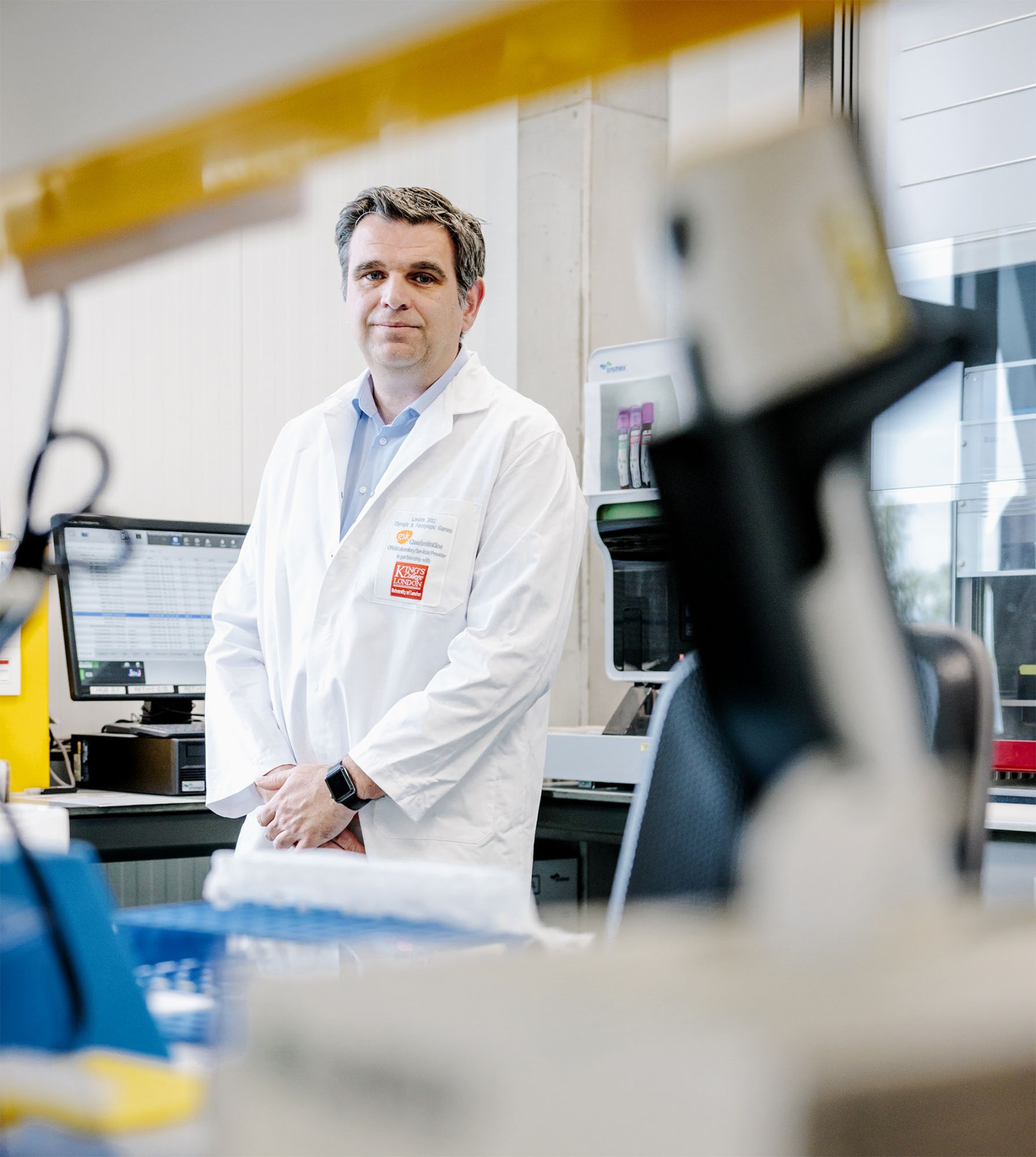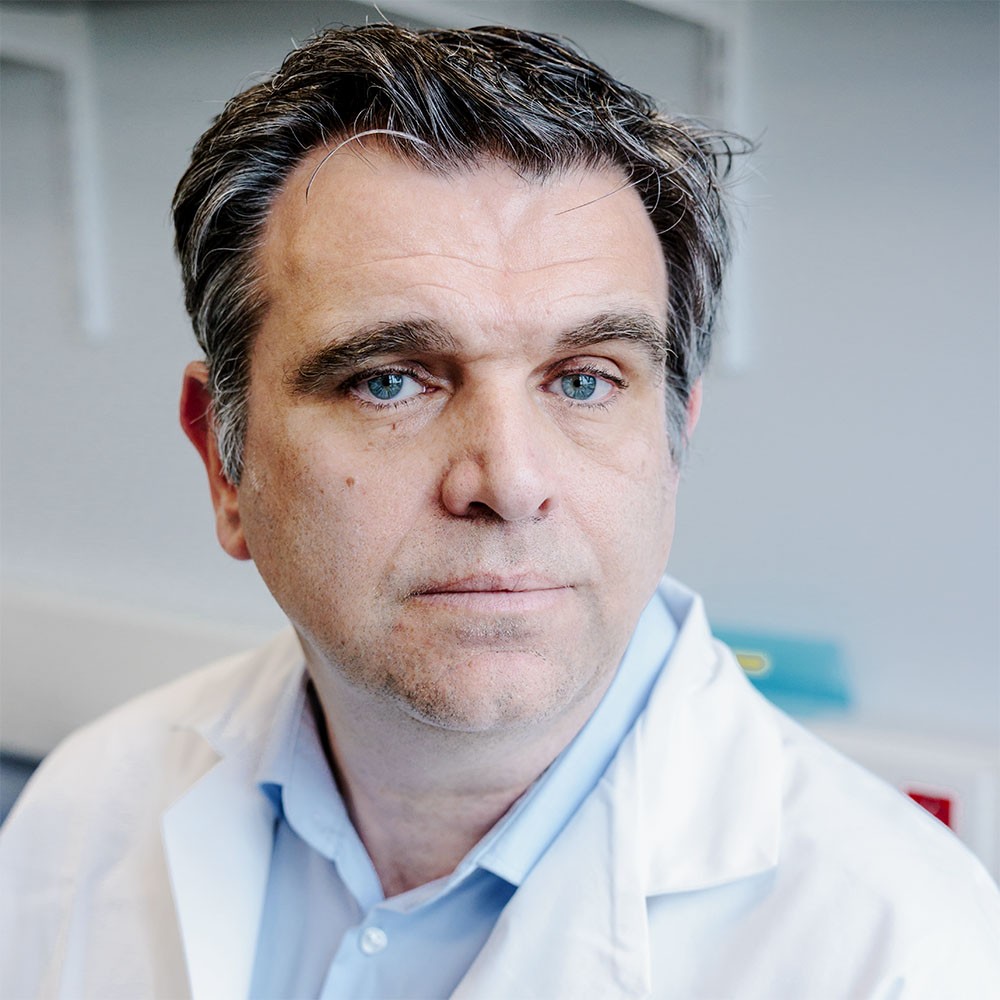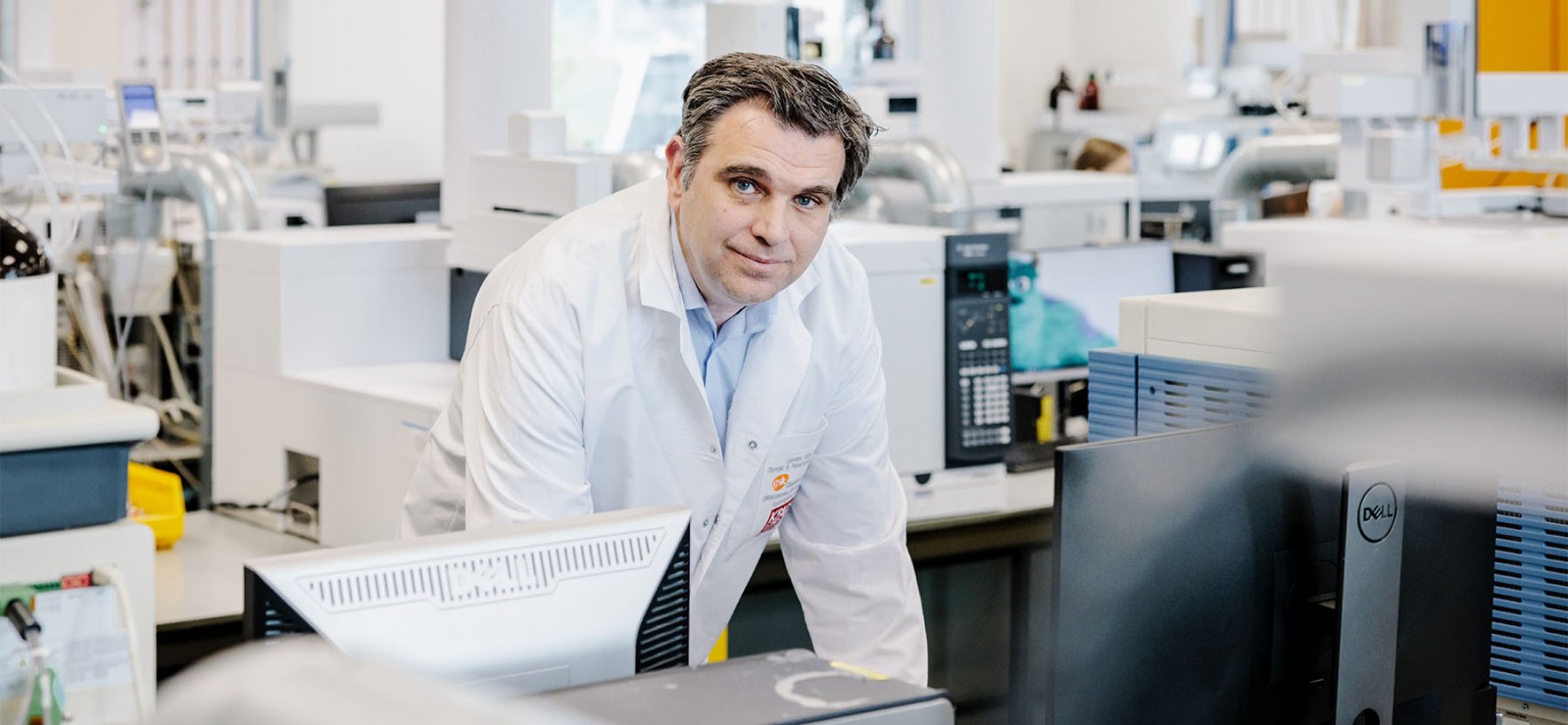The doping controls at the upcoming Olympic and Paralympic Games will again have a Ghent connection. The doping control lab of Ghent University, DoCoLab for short, is sending a team of researchers to Paris to help check many thousands of samples. Peter Van Eenoo, head of the lab, professor and cycling fan, will be part of that team: "We won't have lots of free time, but I do hope to catch some of the cycling (laughs)."
Peter, DoCoLab has really made a name for itself in the sports world, but what makes it so special?
Peter Van Eenoo: "DoCoLab is one the five largest labs in the world in terms of the number of doping samples it analyses annually. I can't say whether those labs are also the best. However, it is true that the World Anti-Doping Agency (WADA), which has accredited 30 labs worldwide in the past 20 years, has suspended two-thirds of those labs at some point. We have never been suspended, so that is some indication of the quality of our work."
You will help to detect doping at the upcoming Olympic and Paralympic Games. Will the whole lab move to Paris then?
"The lab running the checks at the Games is the Paris lab. It analyses around 20,000 samples a year under normal circumstances. However, during the Games, around 10,000 samples need to be analysed in just under a month. The reporting period, which is normally 20 days, is then reduced to 24 to 36 hours. External pressure in terms of the results also rises because of the media, counterparty controls … No lab is equipped for those numbers and that intensity. The Paris lab is therefore deploying around 50 extra people, including eight from DoCoLab. Each researcher is given a position within the Paris team based on their own area of expertise. I will be helping the Paris lab director to make the tough decisions."
Are you expecting to see any new types of doping in Paris?
"It's a little too soon for that still: I expect them to emerge in four years at the LA Games. Gene doping has been on the WADA list of banned substances since 2004. This type of technology remained rare and expensive until 2020. Remember 'baby Pia' in Belgium, for whom only very expensive gene therapy was an option. The coronavirus pandemic has accelerated the development of mRNA vaccines. Such vaccines instruct the body to make antibodies. Gene doping works in the same way: it encourages the body to make more growth hormone or EPO itself. I'm personally convinced that in that sense, the coronavirus contributed to the rise in gene doping."

Peter Van Eenoo: "The development of gene doping is now underway."
So, gene doping will be the next big thing?
"Certain wealthy groups of athletes or countries may be developing gene doping right now. We are bracing ourselves for the 2028 Games. We have submitted a research project to WADA in collaboration with Professor Kim De Leeneer of the Centre for Genetics. The difficulty in detecting gene doping is that the vaccine itself disappears from the body very quickly. In recent years, WADA has therefore increased its focus on biological passports. If a body produces more red blood cells due to gene doping, for example, we can detect suspicious fluctuations over a longer period."
It confirms the image people have of anti-doping measures: new substances and methods keep popping up and your work is never done ... How hard is that for you?
"I see it as a game of cat and mouse. Of course, we get frustrated sometimes, but it is exactly this type of continuous innovation that makes this field so challenging for a scientist. It drives you as a researcher: 'to boldly go where no man has ever gone before'. Our final goal is that no one will use doping anymore. If I'm honest, that's also our biggest fear, because then we'll be out of a job (laughs)."
For an athlete using prohibited substances, how high is the risk of getting caught?
"About 250,000 samples are taken internationally every year across all sports. In equestrian sports, 800,000 samples are taken. The betting agencies are behind those doping controls: they have everything to gain from a clean fight. However, in human sports, the chances of getting caught are incredibly low. Two in three Olympic athletes have not been tested in the year leading up to the Games. The doping cracks are still far too wide to slip through. Our analyses are extremely sophisticated, but we can't perform any tests without samples, of course."
So why is there so little testing?
"In my opinion, because very few people benefit from a positive urine test result. The more tests we perform, the more positive results we will find, and the more role models will disappear. This could be harmful to sports and cause both the audience and the sponsors to pull out. Doping controls are organised by international sports federations or national governments. As long as it is a Belarusian ball thrower who tests positive, the people of Flanders think we're doing a great job. However, if a Flemish tennis star were to be involved, surely there must have been some mistake ..."
Wat is your motivation?
"Mainly the value of sport. Sport is tremendously useful in our society, not only medically, but in terms of the character development of children and young people. They learn to persevere, they are introduced to fair play, they discover that winning shouldn't be at the expense of everything else, that you have to respect your opponent ... Apart from the competitive aspect, those are values that will help you throughout your life.
If you are using prohibited substances, you undermine all those effects. That is why we do what we do."
In brief
- Eight researchers of DoCoLab of Ghent University will help to perform doping controls in Paris
- DoCoLab has been one of the top drug control labs for years and is well known in the sports world
- Gene doping will be the next big challenge for doping hunters

Peter Van Eenoo completed a PhD at the Faculty of Veterinary Medicine and is now a professor at the Faculty of Medicine and Health Sciences of Ghent University.
In 2010, he succeeded Professor Delbeke as head of DoCoLab (the doping control laboratory of Ghent University). He went to London as the head of the doping delegation for the 2012 Summer Olympics.
Read also
Ghent University professor collaborated remarkable opening ceremony of Olympic Games: "The pressure was on"
No traditional opening for the Olympic Games in Paris, but a spectacular fleet of 95 boats on the Seine with 10,500 athletes on board. It was a historic moment and a technical feat. The research group of Evert Lataire, Ghent University professor of Ships and Marine Technology, trained the captains for this unique boat parade.
Alumnus Inge Bru coaches Paralympic athletes in Paris: "It's going to be intense!"
Good news for sports fanatics, the summer of sports is not over yet! Our Belgian athletes will soon be competing at the Paralympic Games. Alumna Inge Bru, specialist in physical medicine and rehabilitation at Ghent University Hospital, accompanies them in Paris.
Ghent University researchers support Olympic track cyclists: optimal performance thanks to sensors and AI
If the Belgian track cyclists win a medal at the upcoming Olympic Games, it will not only be the result of top performances but also of top research. In the Flemish Cycling Centre Eddy Merckx, a stone's throw from the Watersportbaan, a group of researchers from the IDLab of UGent-imec supports our track cyclists with the help of artificial intelligence (AI).
New field hockey ball saves thousands of litres of water per game
Professional hockey fields require extensive wetting. Millions of litres of water are used annually to irrigate one field, making the sport expensive, unsustainable and inaccessible. That's why the international field hockey federation FIH aims to switch to dry fields as soon as possible.




